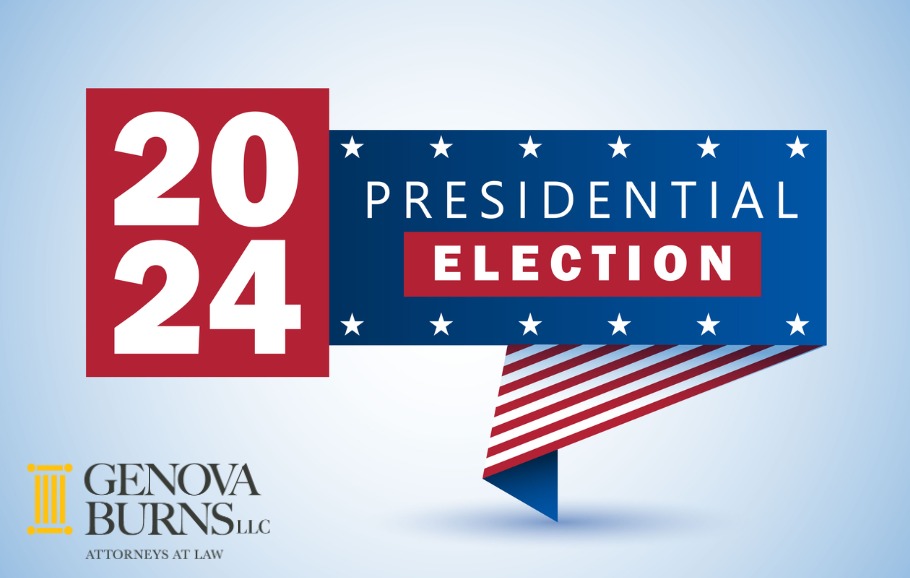2024 Election: How Labor Law Could Shift Under Trump or Harris Leadership
October 30, 2024 | By: Edward J. Bonett, Jr., Esq.
The Presidential Election is upon us with many indicators predicting a close election. The two candidates and their respective party platforms offer opposing views on many major issues. While some issues play more prominently in the press than others, issues related to Labor Law feature two vastly divergent approaches. Since President Trump already has a track record on federal labor policy and Vice President Harris signals support for President Biden’s labor policy, here are three areas in Labor Law that will be sensitive to who takes the oath of office on January 20, 2025.
Joint Employer Status
Whether two companies are considered joint employers under the law has significant implications for whether and to what extent civil liability may be assessed against both companies for only one company’s actions. It also impacts whether labor union organizing may eventually compel both companies rather than one to recognize and bargain with a union. The approach under the Trump Administration made it more difficult to bind two distinct entities, while the Biden Administration, and foreseeably under a Harris Administration, may favor imposing liability for unlawful conduct and representation obligations on both employers.
In 2020, the Trump Labor Board issued a rule on joint-employer status that would require a showing that the two employers possess and exercise substantial direct and immediate control over essential terms and conditions of employment. Actual and not theoretical control mattered. Contrast that with the Biden Board’s final rule published in October 2023 directing that an entity may be considered a joint employer of a group of employees if each entity has an employment relationship with the workers and they share or codetermine one or more of the workers’ essential terms and conditions of employment, regardless of whether the two companies exercise the authority to control essential terms of employment. Such control could be direct or indirect.
However, the Biden Labor Board effort ran aground when a federal court in Texas earlier this year vacated the rule, leaving the Trump Joint-Employer rule intact for now. Nevertheless, it is reasonable to expect that a Harris Board will likely revisit this issue and chart a more expansive standard, making it easier for unions to hold two companies accountable for the actions of one.
Union Election Policy
The Biden Labor Board dramatically changed the playing field for the union election process in its August 2023 Cemex Construction Materials Pacific, LLC decision. Under Cemex, the burden of petitioning for an election has shifted to the employer once a union demonstrates majority support by signed authorization cards alone. The secret ballot election is no longer the default election method. Moreover, if an employer commits an unfair labor practice after being shown a card majority, the employer could lose the option of a secret-ballot election and be ordered to recognize and bargain. Cemex is presently being reviewed by the 9th Circuit Court of Appeals. If it survives, the standard, which has already changed the nature of election campaigns, would continue to ease the path to unionization.
Under a Trump Board, the election standard would undoubtedly return to the pre-Cemex world, whereby an employer could decline to recognize a union by a card check, leaving the burden on the union to seek a secret-ballot election. Additionally, an unfair labor practice will not typically derail an election, but would rather leave the issue of whether and how it may have influenced an election to a post-election objections process.
In addition, under a Trump Board, decertification petitions filed by employees will have more likelihood of being processed to an election and not blocked by a union’s unfair labor practice charge. The procedure for such situations was to allow a decertification vote while unfair labor practices are resolved, as opposed to the Biden Labor Board’s current rule (implemented this year and known as the “Fair Choice Rule”), which blocks such elections. Thus, the extent to which a union’s unfair labor practice charge “blocks” an election to challenge its ability to stay in a workplace may depend on who is in office.
Company Rules
Finally, how employer workplace rules survive Board scrutiny will depend on who takes office. In Stericycle Inc., the current Board set a new legal standard for evaluating employer work rules that are on their face neutral but challenged as unlawful as chilling Section 7 rights under the National Labor Relations Act (in situations when the rule itself and not its application are being challenged). The Board now finds a work rule presumptively unlawful if it has a reasonable tendency to chill employees from exercising their rights to join together to affect working conditions. Rules are scrutinized from the perspective of an employee who is wary of losing his/her job. If a rule could reasonably chill protected activity, then the rule is presumptively unlawful. An employer must then prove not only that the rule advances a legitimate and substantial business interest, but also that the employer is unable to advance that interest with a more narrowly tailored rule.
By contrast, under the Trump Board’s 2017 Boeing decision, facially neutral workplace rules are reviewed for the nature and extent of any potential impact on any NLRA rights as well as the business justifications for the rule. Rules are reviewed for what behavior they more obviously attempt to restrict rather than on what they may also be perceived to restrict. Under this standard, more work rules would be presumptively lawful than presumptively unlawful. These workplace rules may involve issues as wide-ranging as email usage, protecting confidentiality of employer records, what constitutes insubordination, and civility. In particular, rules governing basic expectations of civility are more likely under the Trump standard to be lawful even if by some interpretation they might curtail protected activities.
In sum, Labor Law is at a fork in the road. These are just three of many labor law issues that are staring at the intersection.
Should you have any questions, please contact Counsel Edward J. Bonett, Jr., Esq. at 908.546.6991, email here, or any Partner in our firm’s Labor Law Practice Group.
Tags: Genova Burns LLC • Edward J. Bonett, Jr. • Labor Law • President Trump • Employment Law & Litigation • President Biden • NLRA • Joint Employer • Unions


